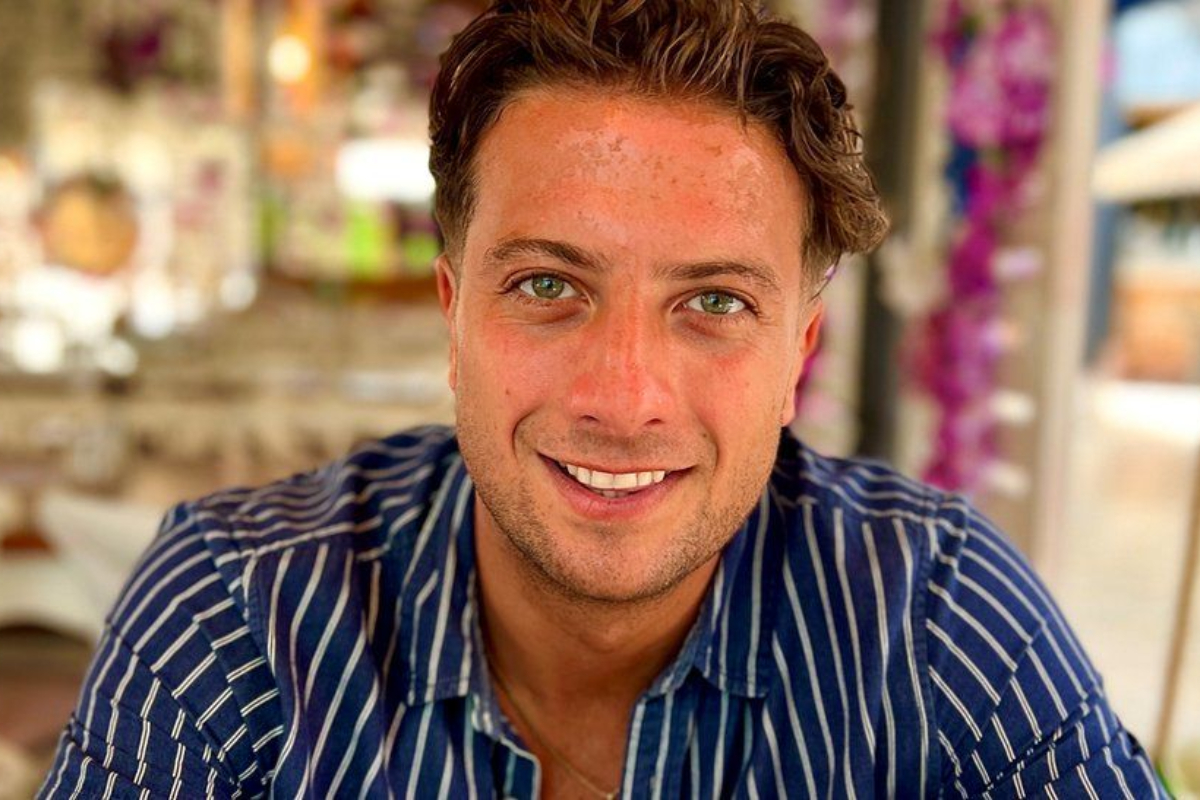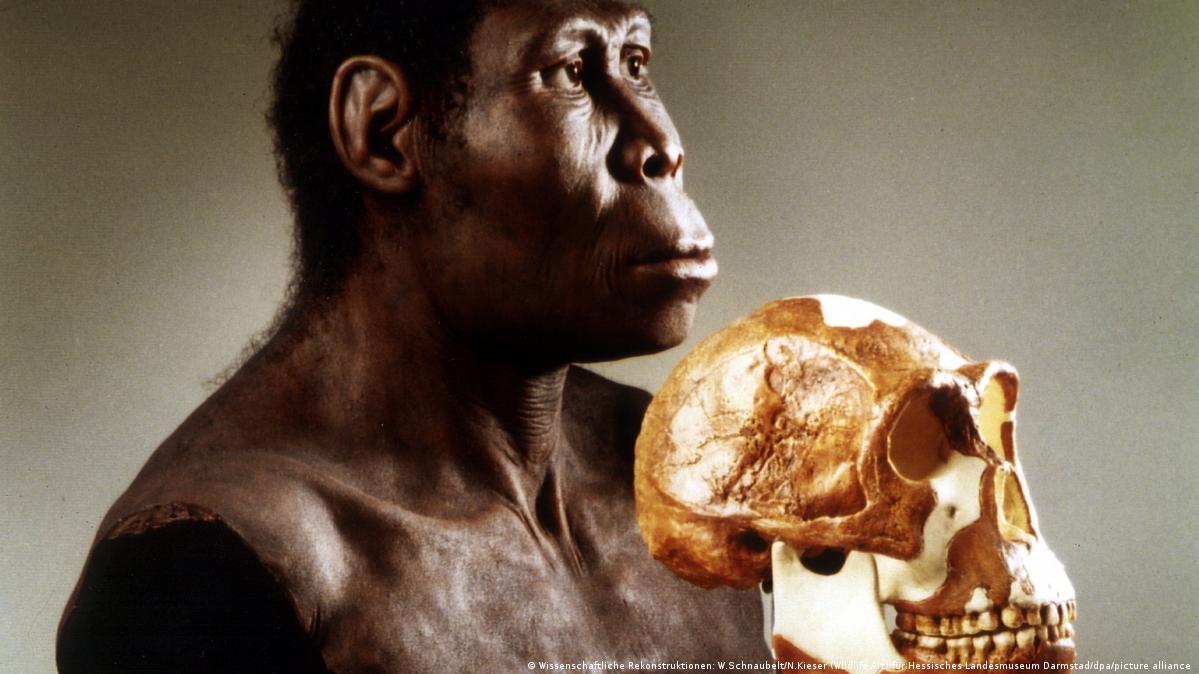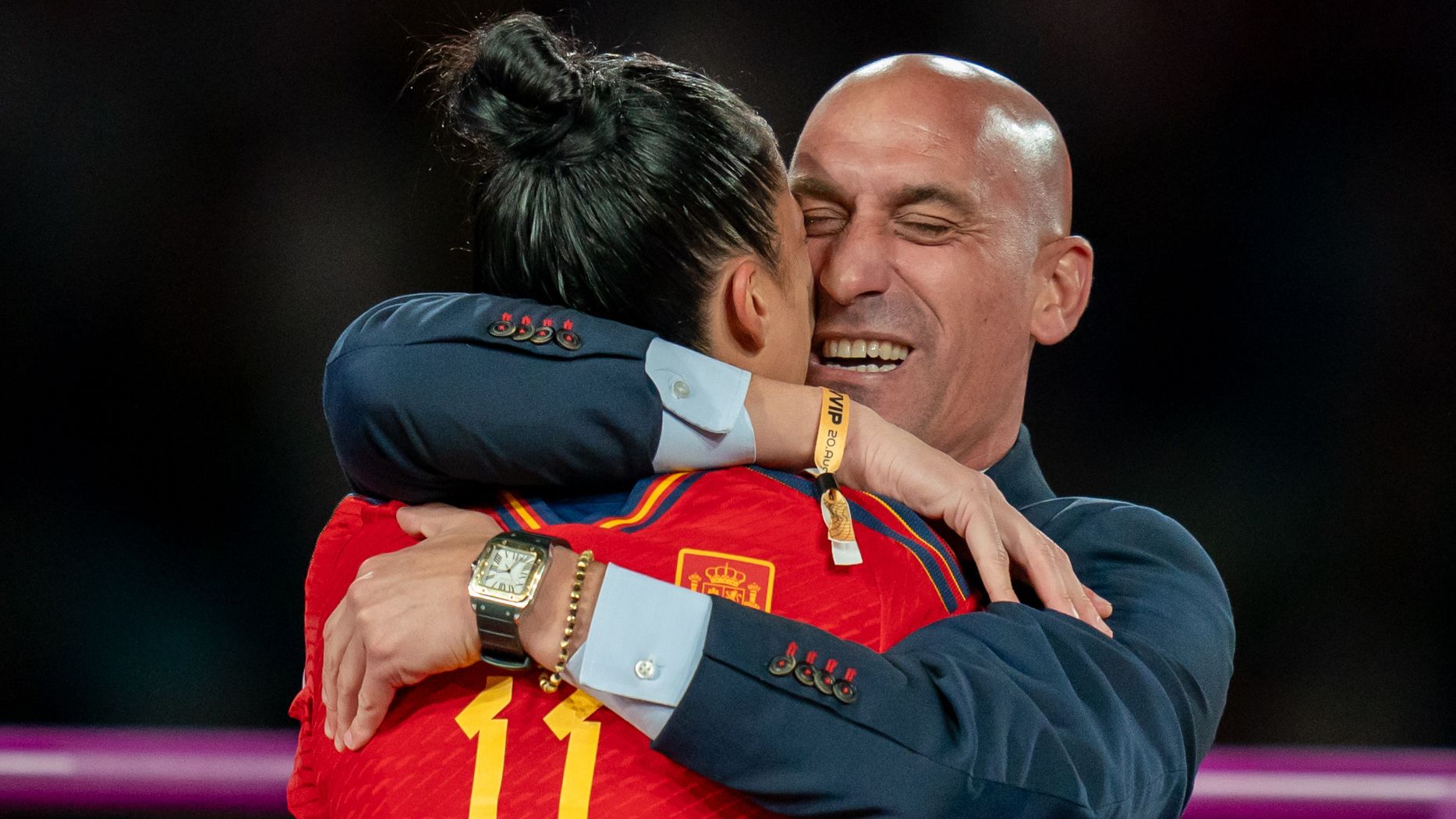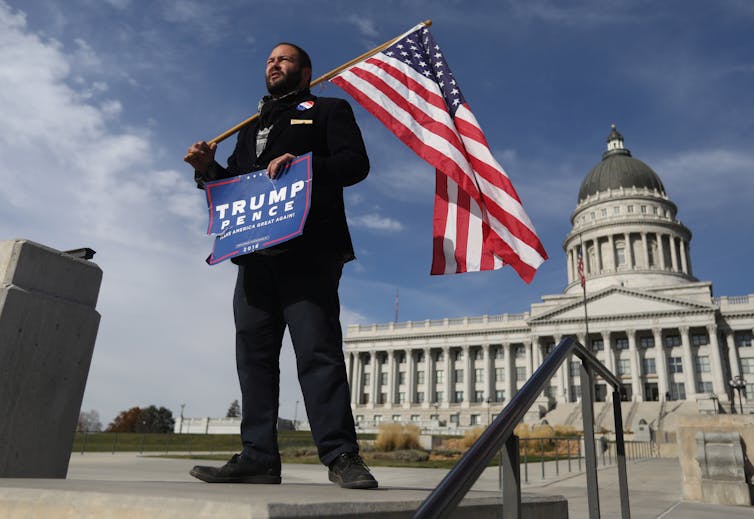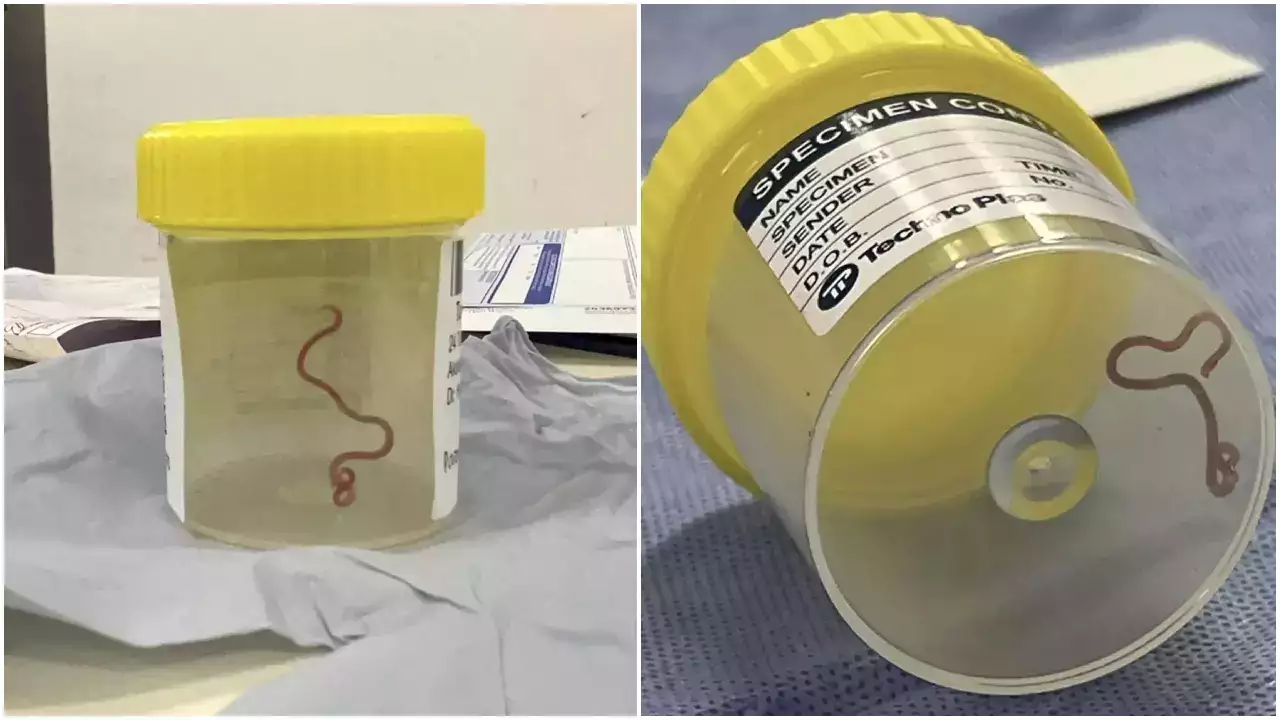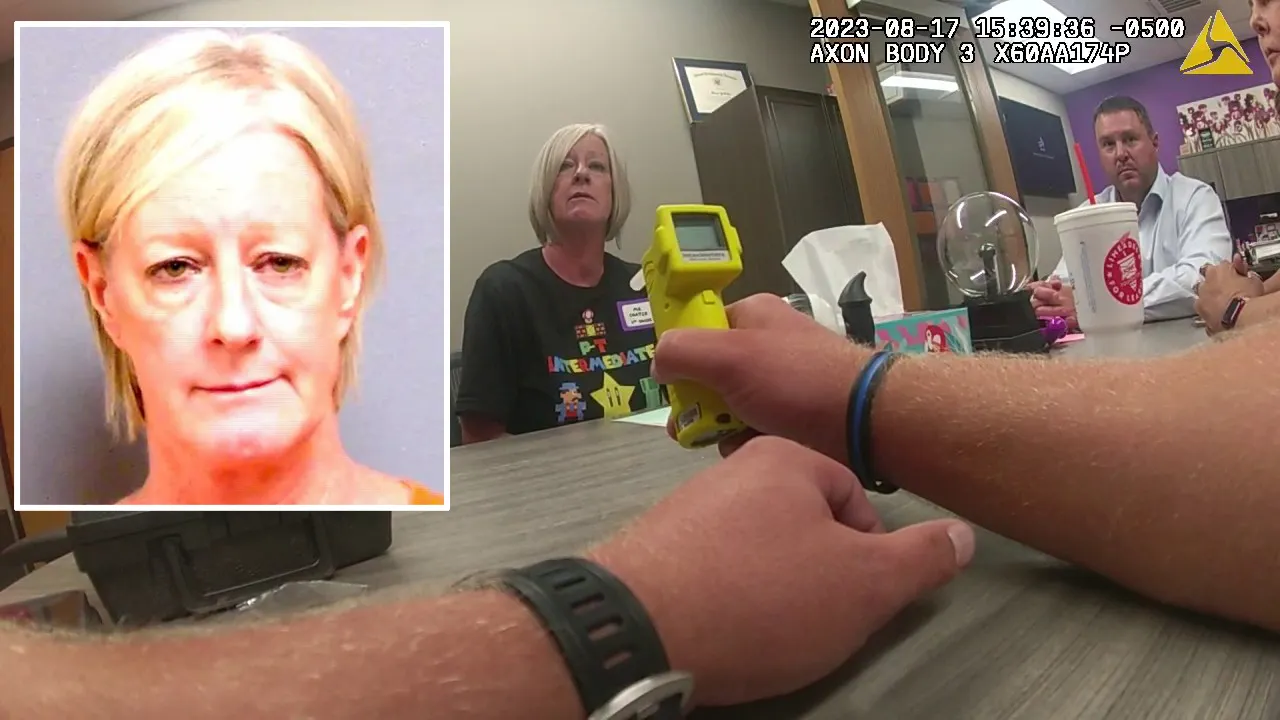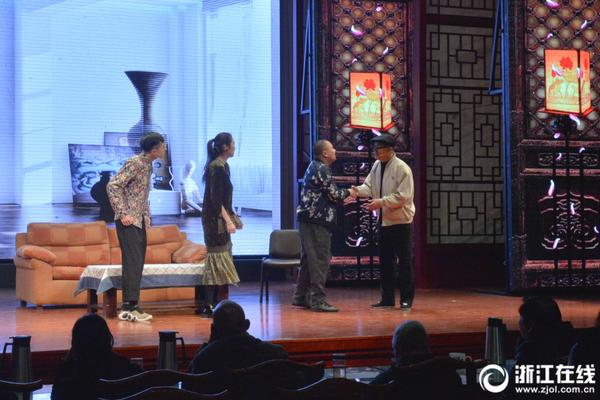Keystone Race
Keystone Race
Is the mayoral primary in Philly a bellwether for Democratic politics? Carol Highsmith (Library of Congress)
Carol Highsmith (Library of Congress) o
r
d
F
a
c
t
o
r
y
Philadelphians are anxious and maybe even a bit unhappy. According to a recent major survey of Philadelphia voters, only a bare majority of Philadelphians rate the city a “good” or an “excellent” place to live. Meanwhile, 65 percent of respondents agreed that Philadelphia was “pretty seriously off on the wrong track.” There are, of course, substantial bright spots: until the start of the pandemic, Philadelphia’s population had grown for twelve straight years, with much of the increase driven by immigration. The economy has grown too, with increases in household wealth and income and declining unemployment. But economic good fortune has not been evenly distributed, and most gains have gone to wealthier and more educated residents. On the whole, Philadelphia remains poor, the poorest big city in America, with nearly 23 percent of the city living below the poverty line, and nearly 12 percent living in deep poverty. As elsewhere, the Covid pandemic helped empty downtown business districts and severely strained public resources from the transit system to mental health care. City residents who have lived in Philly for ten years or more view it more negatively than recent transplants, who are likely to be wealthier and more educated than the city at large.
It is in this context that Philadelphia is preparing to elect its hundredth mayor. Voters go to the polls in the Democratic primary on May 16, with five viable candidates in a race that has become the most expensive in the city’s history. Like Chicago’s recent mayoral election, the Philadelphia race can largely be understood as another test of the ability of younger voters and the progressive wing of the Democratic party to capture and hold a piece of the political machinery of large American cities.
Philadelphia last elected a new mayor in 2015, when Jim Kenney pulled together a coalition of labor unions, establishment-friendly Black voters, and progressives and movement groups from across the city by promising reinvestment, economic opportunity, labor protections, and local control of public schools after a disastrous state takeover. The great recession was over, and it was time to move from budget cuts to new spending. This election will not be a rerun of that year’s: as much as progressives would like to make it a referendum on fixing city services and making sure all city residents can share equally in the benefits of city life, the race is defined by concerns about crime.
Despite the jockeying, the mudslinging, and the now-daily parade of forums, interviews, rallies, and canvasses, the race has no real frontrunner.
While substantially worsened by media framing, as news outlets and national commentators alike tell a trumped-up story of American urban centers in the grasp of a historic crime wave, such concerns are not just a product of this narrative. In the same voter survey cited above, 89 percent of respondents across demographic categories agreed that “crime such as gun violence, carjacking” should be a top priority for Philadelphia. For Black respondents, that rate was even higher: 93 percent. The city has seen three straight years of record homicide rates, with 474 fatal shootings and 1,788 nonfatal ones in 2022 (homicides did decline modestly from 2021). Another recent study found Black children living in Philadelphia, like in other major U.S. cities, were a hundred times more likely to be victims of gun violence than white children. As the Philadelphia Inquirerreported in 2021, much of the violence is concentrated in a few dozen city blocks spread out across Black and brown neighborhoods that are marked by deep and persistent poverty, high home vacancy rates, and near-nonexistent city services. Recently, however, shootings have seemed to spill out into other neighborhoods. While highly publicized incidents last year—including a bizarre night on the Ben Franklin Parkway during a music festival when two police officers received bullet wounds from a gun fired from far outside the event site, and another shooting in the downtown hotspot of South Street —did not change much statistically, they demonstrated that what had been a geographically contained problem was now the whole city’s problem.
Here, too, the Philadelphia election echoes the Chicago mayoral campaign, which was dominated by arguments over police funding and how to reduce violent crime. Chicago’s gun problem is also substantial, as is its reputation for violence in both mainstream and conservative media. In that city, however, a primary election in which no candidate carries a majority triggers a two-person runoff, leading in this case to the schoolteacher and union organizer Brandon Johnson facing Fraternal Order of Police-endorsed public school dismantler Paul Vallas. The Philadelphia mayoral race promises no such head-to-head matchup.
Still, the Philadelphia mayoral field has its own movement-backed progressive aiming to upend conventional wisdom about the continued appeal of left-wing politics among urban voters in 2023. Helen Gym, a former at-large city councilor, can boast of a series of accomplishments tied to movement goals. These include leading the fight for facilities modernization and lead and asbestos cleanup in Philadelphia school buildings, passing a fair workweek act, and designing an eviction diversion program that reduced evictions by 75 percent. Gym first entered public life as an education activist opposing the state takeover of Philly schools at a time when budget cuts, school closures, and school district dysfunction galvanized teachers, parents, and students. These accomplishments have built an inalienable base of support and movement credibility for Gym’s vision of a transformed city—one that invests in public education, equitable economic development, and alternatives to incarceration.
A challenge for progressive political campaigns nationally is that they often draw support not primarily from poor and working-class voters but from the younger, more educated, and more economically secure voters whose concerns help drive activist politics. This is an attack that has been leveled against Gym by political opponents and skeptical political commentators alike. Gym, however, has run twice citywide for at-large council positions and won both times by convincing margins, including in neighborhoods like Southwest Philadelphia, not known for being a hub of left-wing activism. She has likewise cultivated labor support: her union backers include both the Philadelphia Federation of Teachers, a local of the AFT which helped engineer Brandon Johnson’s victory in Chicago, as well as Philadelphia UNITE HERE, which represents workers across the hospitality and service sectors and runs a formidable canvassing operation that has already played a major role in delivering votes in state and national elections. In other words, a crucial piece of her coalition comprises not just young, voluntarist activists, but frontline workers and their organizations. If Gym is to win, she will need them all—not only the activists, the progressives, and the unions, but also a sizable chunk of primary voters who want nothing more than an end to violence. She will have to convince them that the city cannot police its way out of this crisis.
Anyone who wants to be elected mayor of Philadelphia has to win the votes of a substantial number of Black Philadelphians, 42 percent of whom remain undecided as of this writing. The tendency of Black voters to support Black candidates, and white voters to do the same for white candidates, is called, somewhat bluntly, “racial math.” There are signs that this rule is not as ironclad as it had been—Jim Kenney, a white guy from South Philly, defeated state senator Anthony Hardy Williams by over thirty points, winning a plurality if not an outright majority of the Black vote—but it remains a factor in a city where economic inequality breaks down along racial lines. There are still Black candidates in the race, the most prominent of whom, Cherelle Parker, has a relationship with Black voters—and the Black political establishment—stretching back across decades of work as a state representative and city councilor.
Parker has cast herself as the avatar of longtime Philadelphians, emphasizing her life in politics and “at the intersection of race and gender.” She, too, boasts labor backing, including from the Building and Constructions Trades Council (themselves under Black leadership for the first time), and SEIU 32BJ, which represents building services workers. In contrast to Gym—and much like New York mayor Eric Adams—Parker has promised to ramp up policing. She proposes to allow police to use what she calls “constitutional stop and frisk” (also known as Terry stops), put three hundred new police officers on the street, and implement a community policing plan to put beat cops in every neighborhood. She also opposes the opening of a proposed safe injection site as a solution to Philadelphia’s overdose epidemic.
Campaigns and their supporters are not just making their final pitches to voters, they’re also getting some last arguments in against opponents.
Politically, Parker has been intimately affiliated with the Northwest Coalition, an organization of Black politicians and neighborhood-level political leaders concentrated in the Black middle-class neighborhoods of Northwest Philadelphia: places like Germantown, West Oak Lane, where Parker was born and raised, and Mount Airy, where she now lives. Parker calls these areas “middle neighborhoods”—within the city, but far enough from the center to offer detached homes, yards, and a standalone community feel. These communities are under threat from out-migration, disinvestment from a city focused on the downtown core and the university-adjacent innovation districts, and, in some cases, younger nonblack transplants. Parker believes that Northwest Philly and neighborhoods like it constitute the cornerstone of Philadelphia’s civic life. She has a point: the Coalition moves tens of thousands of votes and communicates directly with many party-identified Democrats who vote in every election. For Gym, the challenge will be convincing voters not to reflexively support more cops and more crackdowns. For Parker, the question is whether her machine, facing an aging population and eroding economic stability, can deliver victory in one more mayoral race.
The Coalition has played kingmaker in a number of recent, high-profile elections. And though it began as a project to build and institutionalize Black political power, Coalition leaders have not shied away from endorsing nonblack politicians in races where ideological and policy issues played a major role. The Northwest Coalition supported Jim Kenney in 2015 and backed Larry Krasner, one of the first in a wave of progressive prosecutors to win election in major U.S. cities. In both cases, the Coalition’s endorsement helped secure them the Democratic nominations.
More significantly, Black political leaders in Northwest Philly stuck with Krasner in his 2021 reelection bid. That race took place under very different circumstances: in 2017, Krasner was running to challenge an old system at a time of declining violent crime, and seeking to take control of a DA’s office mired in scandal and corruption. By 2021, however, crime had increased, and the city was on track to set a new record for homicides, while Krasner could no longer blame problems at the DA’s office on his predecessors. When he sought reelection, the race was widely viewed as a tight contest; surely, thought commentators, voters would blame Krasner for the explosion in crime. Most conveniently ignored the fact that shootings were on the rise across the country in cities with progressive and traditional prosecutors alike. Some political figures who had supported Krasner in 2017 kept their distance, while the city Democratic Party declined to endorse either candidate.
But 2021 was not 2017 in another significant way: it came after the 2020 uprising for racial justice sparked by the police killing of George Floyd in Minneapolis. The Philadelphia Police responded to protests with particular brutality, at one point tear gassing an entire crowd of demonstrators as they marched along the 676 highway that cuts through downtown. It was hard to make the case that the Philadelphia Police Department used reasonable force or professionalism, and as calls to defund the police grew in 2020, city council voted to cancel a proposed increase to the police budget. Perhaps as a result of sustained opposition to policing practices, Krasner trounced his challenger Carlos Vega. Black voters supported him overwhelmingly. Crime has remained an important issue, but at least as far as the District Attorney’s office was concerned, Philadelphians did not want to abandon Krasner’s project.
The increase in gun violence that exploded during the first year of the pandemic has proven more durable than anyone had hoped. Krasner remains then politically divisive, despite having won convincingly in 2021. When the mayoral candidates met for a first televised debate at Temple University, only Gym could speak positively of the DA’s performance, saying that Philadelphians needed to stop thinking of crime prevention only in terms of policing and prosecution (though even she stopped short of saying his policies made Philadelphians safer). Parker, for her part, critiqued Krasner’s response to retail theft, arguing that such theft targets Black-owned businesses. That Parker had distanced herself from Krasner after twice endorsing him seems significant, though it is hard to tell whether her zeal for law enforcement represents her true convictions or her best guess about what the electorate wants to hear in 2023. Another candidate, former City Controller Rebecca Rhynhart, tamely offered that Krasner needed to crack down on retail theft and step up gun law enforcement. Both of the other viable candidates, real estate mogul and former city councilor Allan Domb and supermarket chain owner Jeff Brown, said no, Krasner’s tenure has not made the city safer.
Having come to Philadelphia from Wall Street, Rhynhart incarnates a technocratic strand of big city liberalism focused on good government, efficiency, fiscal responsibility, and best practices from other municipalities. She attempts to present herself as everything to everyone: progressive enough, but not a hell-raiser; pro-criminal justice reforms, but not an outright ally of Krasner’s; pro-putting more cops on the street without raising the police budget; pro-business without being anti-worker; pro-public-schools without being anti-charter; pro-development without being explicitly pro-gentrification. It would be an impossible line to walk as a governing strategy, but in a wide field dominated by more strident voices, it may be an effective campaign message. Unlike Parker, who leads with personality and charisma, or Gym, who leads with righteous anger, Rhynhart favors a more subdued style, sometimes staying silent at debates and forums until called on while others rush to interrupt. She has earned the endorsement of the Philadelphia Inquirer, as well as the support of three past mayors: Michael Nutter, John Street, and Ed Rendell (who also served as Governor of Pennsylvania from 2003 to 2011). She’s poised to win among well-to-do liberals who vote disproportionately in primary elections, conferring a substantial advantage. Rhynhart is betting on splitting the middle, personality- as much as policy-wise, and while a majority of Philadelphia voters wouldn’t want to elect someone who talks and acts like a public-sector management consultant, in this case, a plurality might.
Rounding out the familiar candidates is Domb, a business-friendly real-estate developer called the “condo king” for his extensive portfolio of properties throughout the city (the Inquirerestimates the value of his real-estate holdings at around $400 million). While Domb’s council tenure had been marked by a distinct preference for helping business and business owners by lowering taxes, cutting regulation, and encouraging private development, he also demonstrated a pragmatic streak that has led to the occasional support for progressive measures alongside the rest of the Democratic council majority. Domb’s greatest asset, his wealth, is also his greatest liability. It is not clear that the rags-to-riches story he has told about his life through his largely self-funded campaign—he grew up working-class and worked for a locksmith before getting into real estate—will persuade voters that he is really interested in helping poor and working people, or that electing him mayor would amount to anything more than letting a wealthy businessman buy himself elected office. Though Domb has run, and won, citywide, and his money will ensure that he remains a factor, he has struggled to stand out in a race filled with big personalities.
Philadelphia’s gun violence may have the last word over all these last-minute efforts, as it has throughout the campaign.
The biggest of these personalities is the only political outsider in the top flight of candidates, the supermarket magnate Jeff Brown. Brown who is white, has specialized in pandering to Black voters with controversial campaign videos comparing him to a Black grandmother (“Big Ma”) and implying that Michelle Obama had endorsed his candidacy. He has also more legitimately touted his commitment to opening his supermarkets in Black neighborhoods, his anti-hunger and anti-food desert advocacy, and his programs for hiring formerly incarcerated people to staff his stores—though critics have pointed out that these moves were as much business strategy as social activism. Brown’s persona borders on Trumpian. Despite his money, he styles himself an everyman who will stand up to entrenched political interests. He, too, proposes tough on crime policies and much greater support for law enforcement, and he has won the endorsement of every police union and association, from the powerful FOP to the Guardian Civic League, the Philadelphia chapter of the National Association of Black Law Enforcement Officers. At the debate, he opened a discussion of gun violence by saying “the first thing I wouldn’thave done is vote to defund the police like all the council people on this stage,” referring to City Council’s decision to cancel the proposed 2021 increase in the police budget.
Brown has poured money into television ads into broadcasting his personality, and early polling conducted by a PAC supporting Jeff Brown suggested that he had gained an advantage, placing him at 24 percent support among likely voters. For at least a month, it seemed thinkable that Brown could pull off an upset victory. But Brown’s inexperience and poor political instincts have begun to tell. He drew audible gasps when, during the debate mentioned above, he suggested that the harmful environmental effects of a trash incinerator in Chester, Pennsylvania—a Delaware-county city where Philadelphia’s trash is burned—would not be his concern as mayor. Debate moderator Shiba Russell seemed stunned. “So you don’t care about Chester?” she asked. Brown doubled down: “I do care, but I don’t work for them if I’m the mayor. I work for Philadelphia. And the trash has to go somewhere.” Brown was out of his depth: thanks in part to the incinerator, Chester—which is 72 percent black—has a childhood asthma rate of more than 38 percent, nearly five times the national average. A more seasoned politician would never have taken so strong a position or failed to moderate it when he realized he’d said the wrong thing. More to the point, though, the exchange helped confirm that Brown’s proclaimed concern for Black Philadelphians is little more than an opportunistic attempt to make inroads with a voting bloc whom Brown views as persuadable.
Meanwhile, he faces serious accusations of illegally coordinating his fundraising efforts with a super PAC supporting his candidacy. The ensuing controversy has wounded his campaign. Brown and those around him, perhaps reflecting on the recent success of nontraditional candidates across the political spectrum, saw an opening in Democratic party politics for a brash, off-the-cuff, unpolished, and unapologetic figure, someone like Trump, or, more charitably, like Pennsylvania Senator John Fetterman. A candidate like that could have a good shot at success. Jeff Brown is not that candidate.
Despite the jockeying, the mudslinging, and the now-daily parade of forums, interviews, rallies, and canvasses, the race has no real frontrunner. It seems that many residents still haven’t made up their minds. The first and only independent poll of voter intention, released on April 28, gave Rhynhart a narrow advantage, with 18 percent voter support. Parker (17 percent), Gym (15 percent), and Domb (14 percent) are all within or close to the credibility interval (3.8 percent). Any of the four could be the “real” leader, while Brown sits at the bottom of the pack, but not out of striking distance, with 11 percent support. A fifth of surveyed voters were undecided.
As election day approaches campaigns and their supporters are not just making their final pitches to voters, they’re also getting some last arguments in against opponents. Cherelle Parker continues to amass endorsements from local political leaders while a super PAC supporting her has released new ads attacking Rhynhart as a budget cutter. Reporters revealed that the charter school supporter, GOP megadonor, and suburban Philadelphia billionaire Jeffrey Yass is the principal donor to an anti-Gym Super PAC that has just launched new attack ads. Yass was not alone, however: Michael Nutter and a PAC run by the Laborers District Council chipped in as well. Gym, meanwhile, announced endorsements from Alexandria Ocasio-Cortez and Bernie Sanders.
But Philadelphia’s gun violence may have the last word over all these last-minute efforts, as it has throughout the campaign. On Monday, a canvasser knocking doors in East Germantown was shot and killed by another canvasser distributing the same literature in the same neighborhood. Details of the incident are still emerging, but reporting has confirmed that both men were working with One Pennsylvania, a membership organization operating independently of the official campaigns. The organization has endorsed a slate of progressive candidates for municipal office—including Helen Gym. Two guns, each apparently in the possession of the two campaign workers at the time of the shooting, were recovered from the scene. The incident underscores how dangerous canvassing can be in a heavily armed country, and in a city where fifty percent of shootings occur as the result of arguments. It also highlights the challenges of campaigning for investments in antipoverty programs, schools, transit, employment, and city services as anticrime measures in an environment where people want quick fixes and quick results. It is not hard to understand their desperation when even the regular business of civic engagement around a mayoral election can so easily turn deadly.
Most commentators seem to agree that the next mayor will be the one who can best make the case that their policies will curtail gun violence. It is difficult to say whether this shooting, or any of the hundreds of others that have already happened in Philadelphia this year, will be the one that sways enough votes to determine the outcome of the race. But Philadelphians have a choice, as they had in the District Attorney elections in 2017 and 2021. This time, they may be persuaded to follow New York’s, example, electing a mayor who promises to crack down on crime and use the police to clear visibly poor and unhoused people off the street. Or they may choose to follow Chicago, electing a mayor who will stay the course for police and criminal justice reform, and who is committed to structural fixes to structural problems. In other words, the Philadelphia election will be read as a bellwether for the state of municipal politics across the country. It will either prove for all time (until the next big election) that voters want a return to tough-on-crime policies, or that progressives have been able to build and defend electoral redoubts in an age of pro-police reaction.
It is also likely that the race won’t turn on any policy specifics but on the personal and civic networks to which voters belong. Faith, labor, and professional organizations will matter, as will the endorsements of individual wards, neighborhood-level political organizations that comprise the building blocks of the Democratic party in Philadelphia. These endorsements, like all politics, boil down to who knows who as much as, or more than, who promises what. As such, the work of winning looks very different: it happens endorsement by endorsement, precinct by precinct, and sometimes door by door. Among Parker, Rhynhart, and Gym (and the winner is likely to be one of the three), it is a test of three different electoral strategies: one focused on persuading institutional actors and party functionaries; another on media validators; the third, Gym’s, on the work of progressive political and activist organizations and a strong field operation. Helen Gym’s opponents are betting that she won’t be able to cobble together enough of a coalition to support her vision in a city where many residents have come to expect less. Maybe they’re right. After all, if Gym is to win, she will have to find a way to break into the neighborhoods filled with the kinds of people who don’t typically vote for progressives. But she’s done it before and maybe she can again. And if she doesn’t? The movements driving progressive politics in Philadelphia will survive and may even pick up a few council seats this year. Without a friend in the mayor’s office, though, they will find it that much harder to deliver.
(责任编辑:时尚)
- ·Report: Abraham Lincoln pardoned Biden’s great
- ·Trump Historic Mugshot Released After Arrest in Georgia
- ·Sticker Shock: Vermont First State to OK GMO Labeling
- ·Sticker Shock: Vermont First State to OK GMO Labeling
- ·Madelyn Pugh Davis, 1921
- ·USDA Announces $19 Million in Grants for New Farmers
- ·NASA’s Moon landing goal in jeopardy, says GAO report
- ·To Catch an Oyster Thief
- ·Modern slavery and tourism: when holidays and human exploitation collide
- ·NASA’s Moon landing goal in jeopardy, says GAO report
- ·China Warns US of Consequences For Banning TikTok
- ·The Good, the Bad, and the GOP
- ·Activist Traveled 300 Km On Jet Ski to Escape China
- ·Buying Local Food ” On Your Phone
- ·World Blames Putin For Critic Navalny’s Death in Prison
- ·Story of A Man Who Wrote Oldest South African Quran
- ·Rare Blue Supermoon To Brighten The Sky This Week
- ·Indian Moon Rover Discovers Key Sulphur on South Pole
- ·Koch Foods, Pilgrim’s Pride Executives Indicted in Chicken Price
- ·Activist Traveled 300 Km On Jet Ski to Escape China



